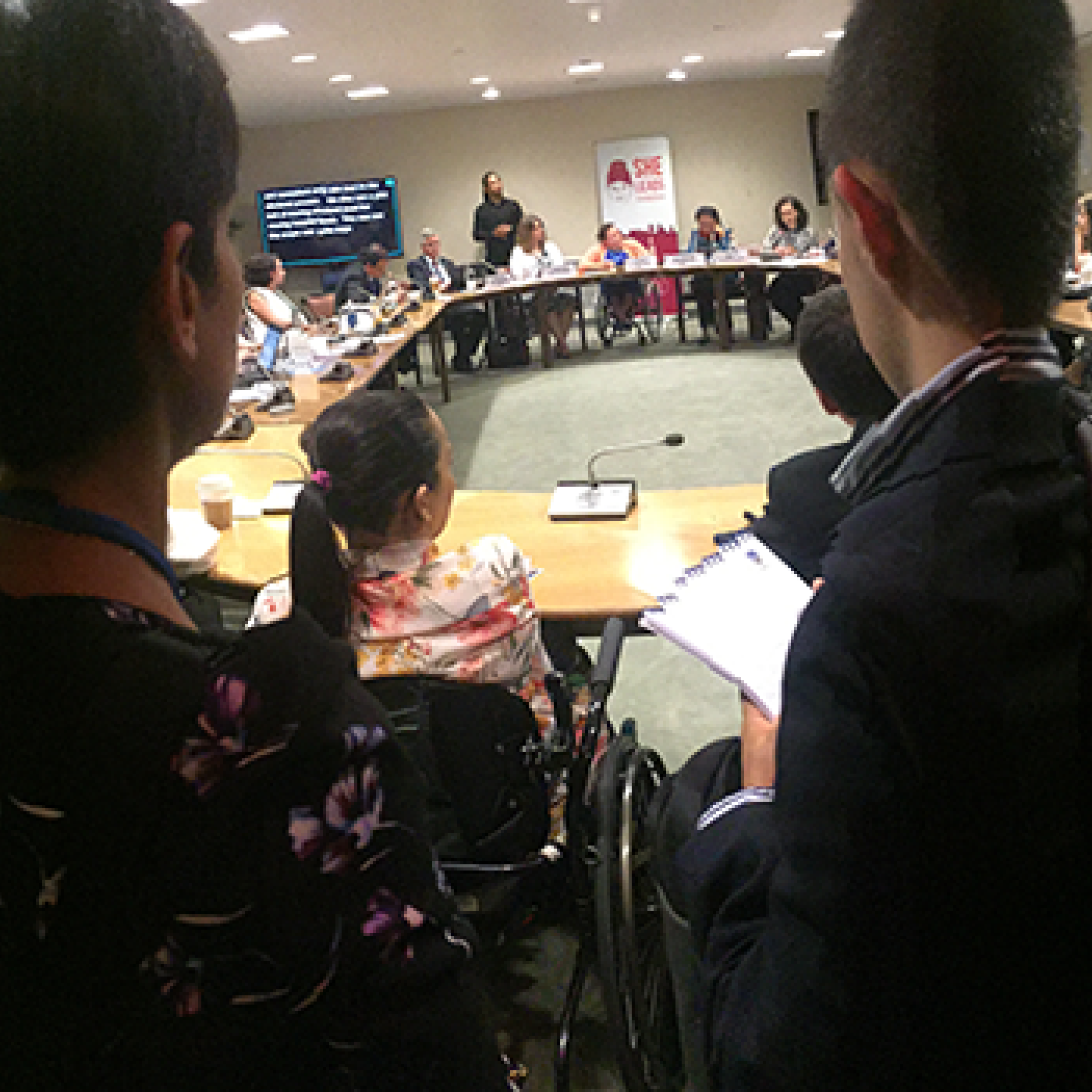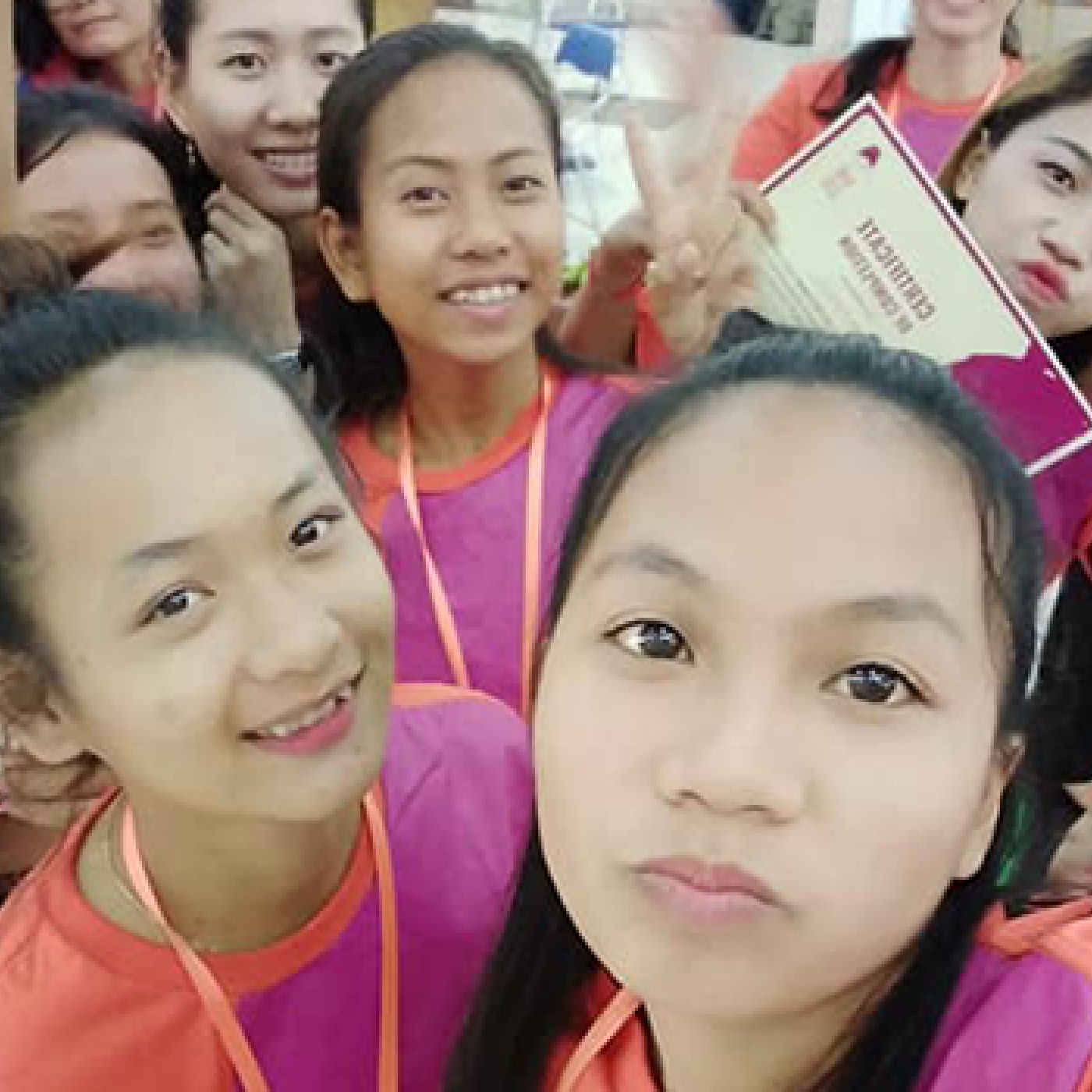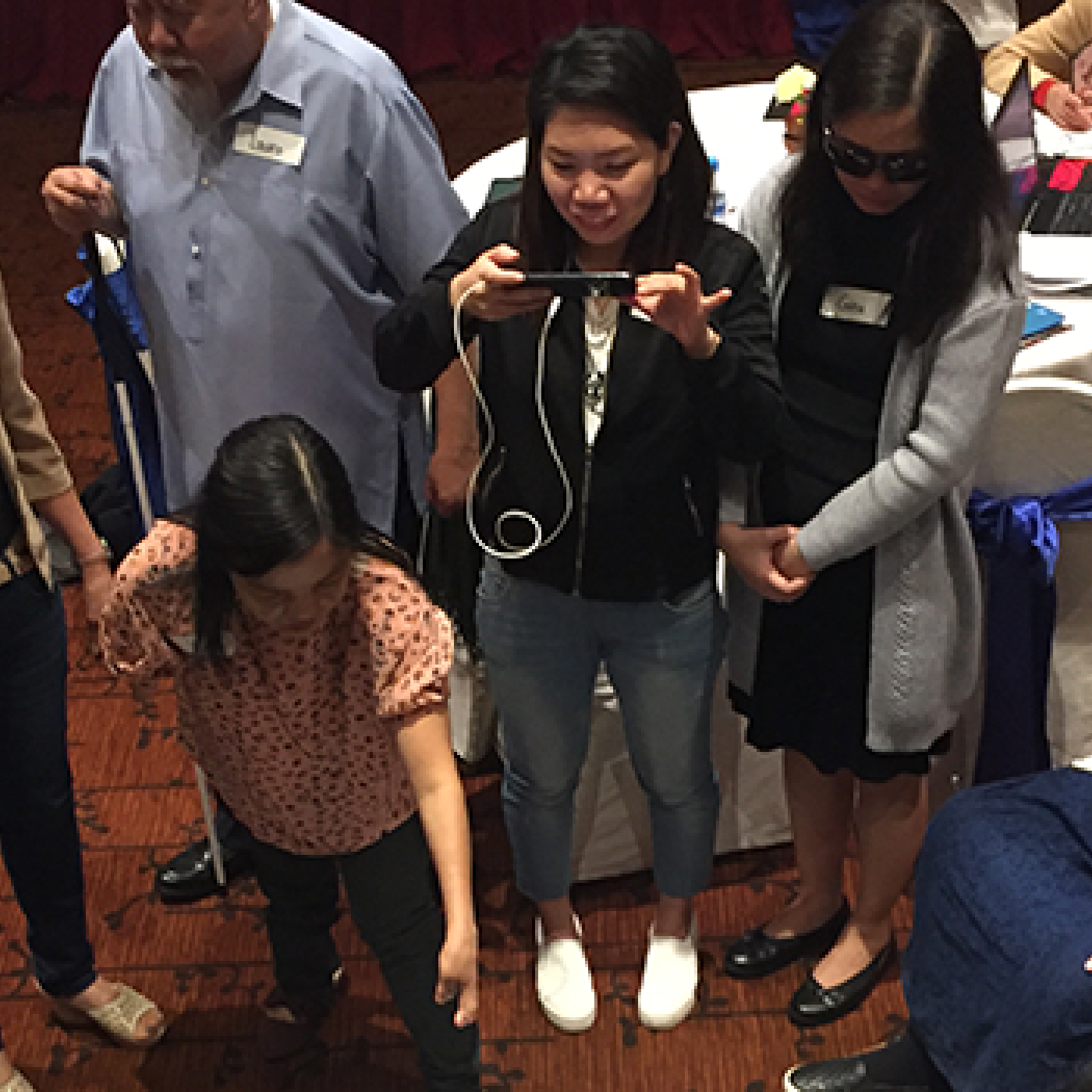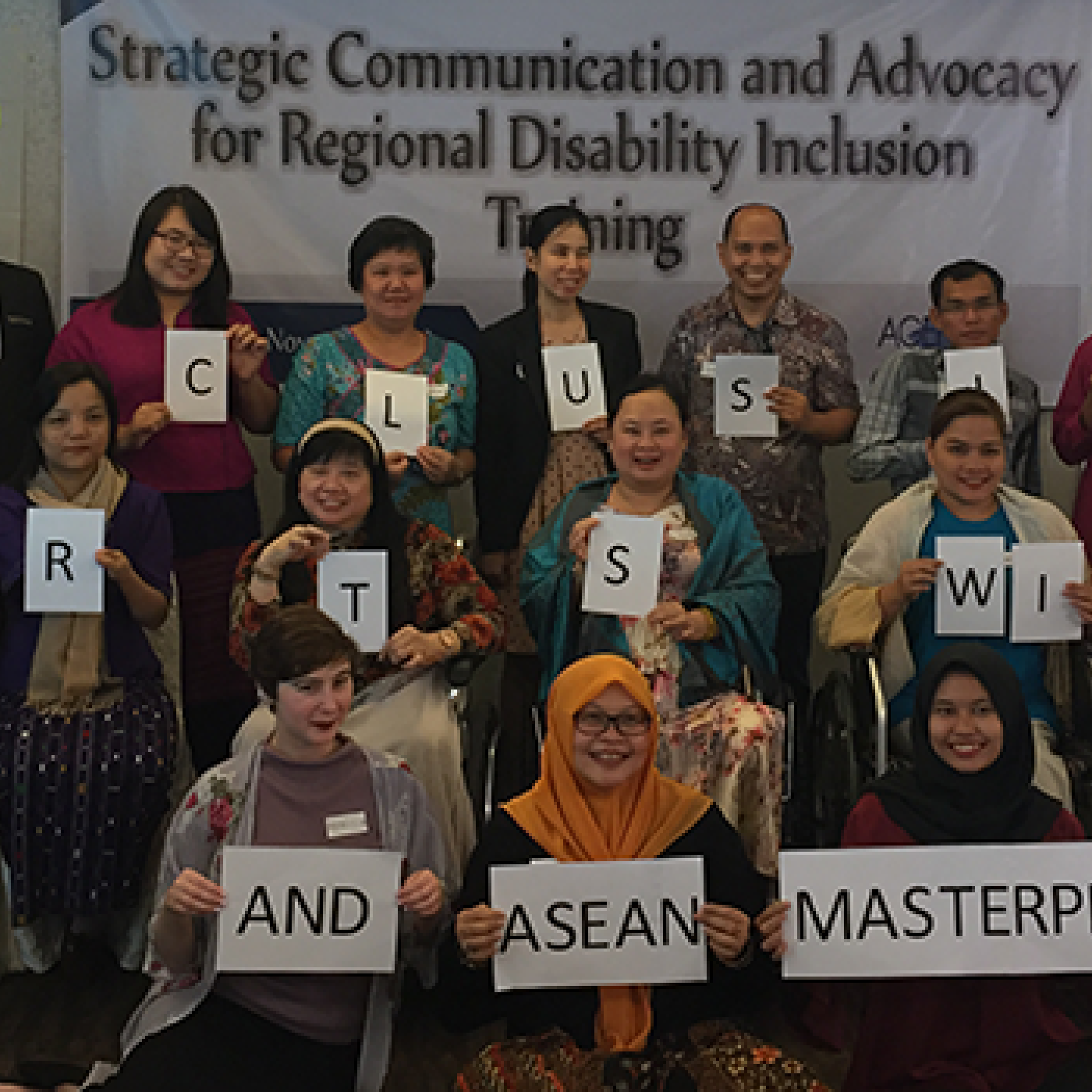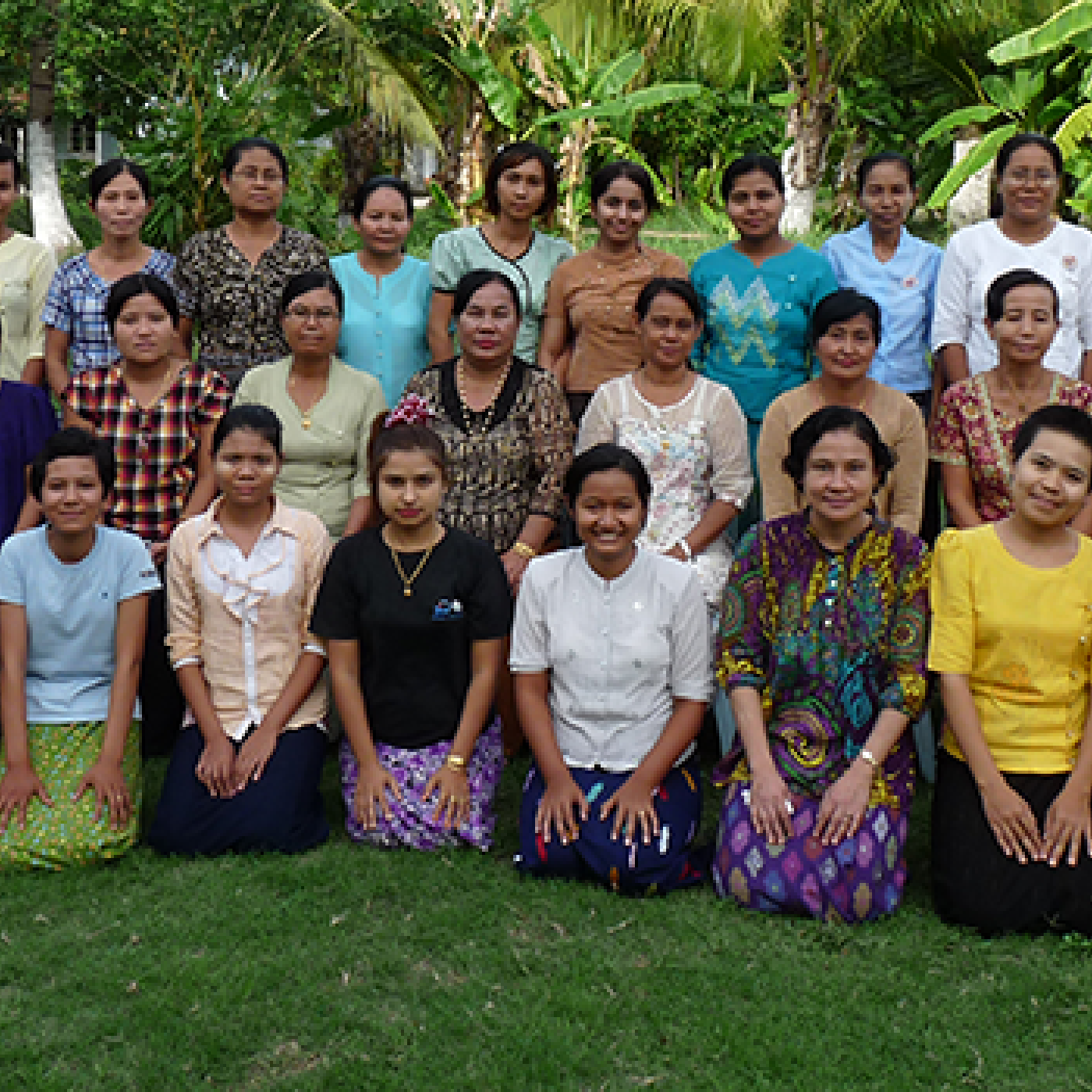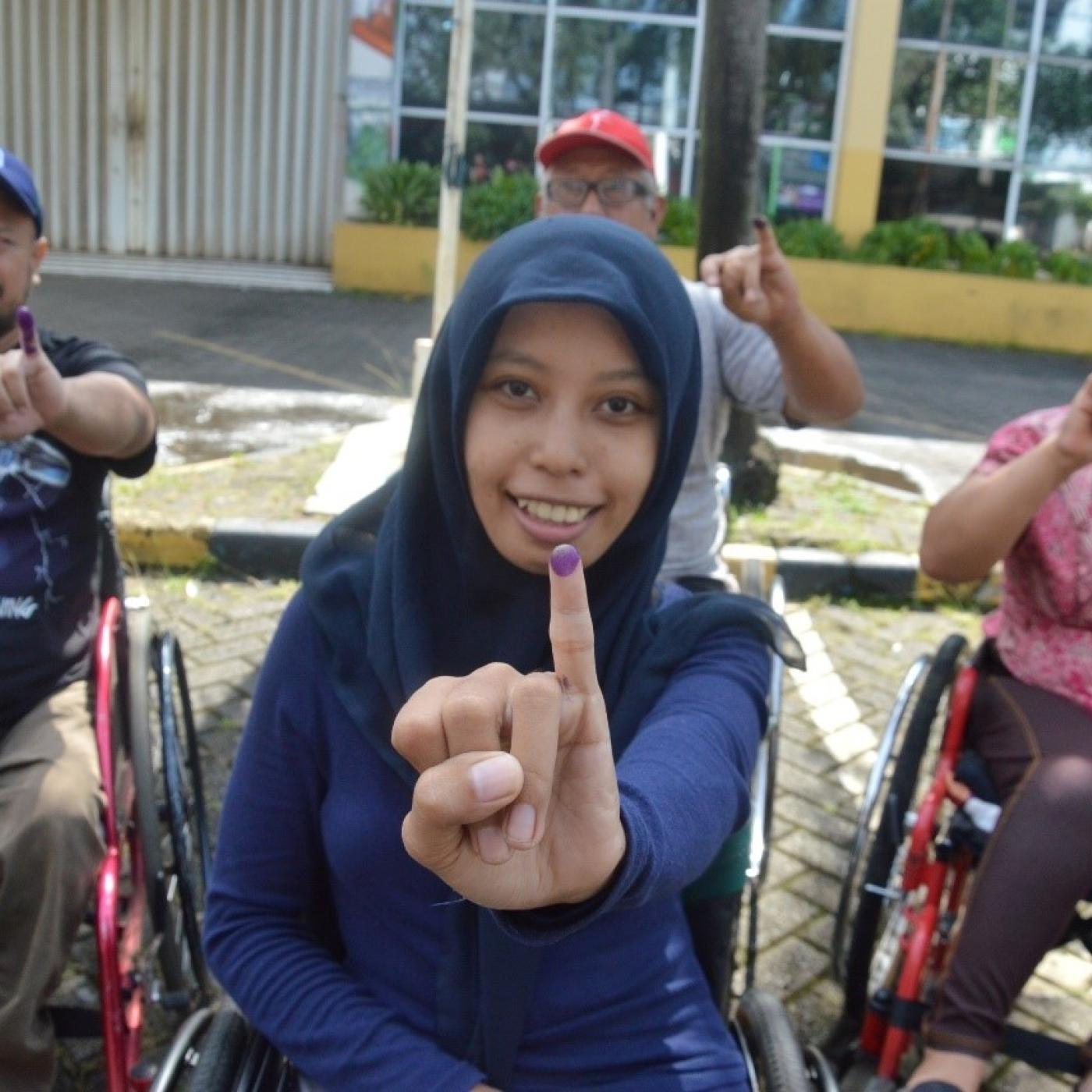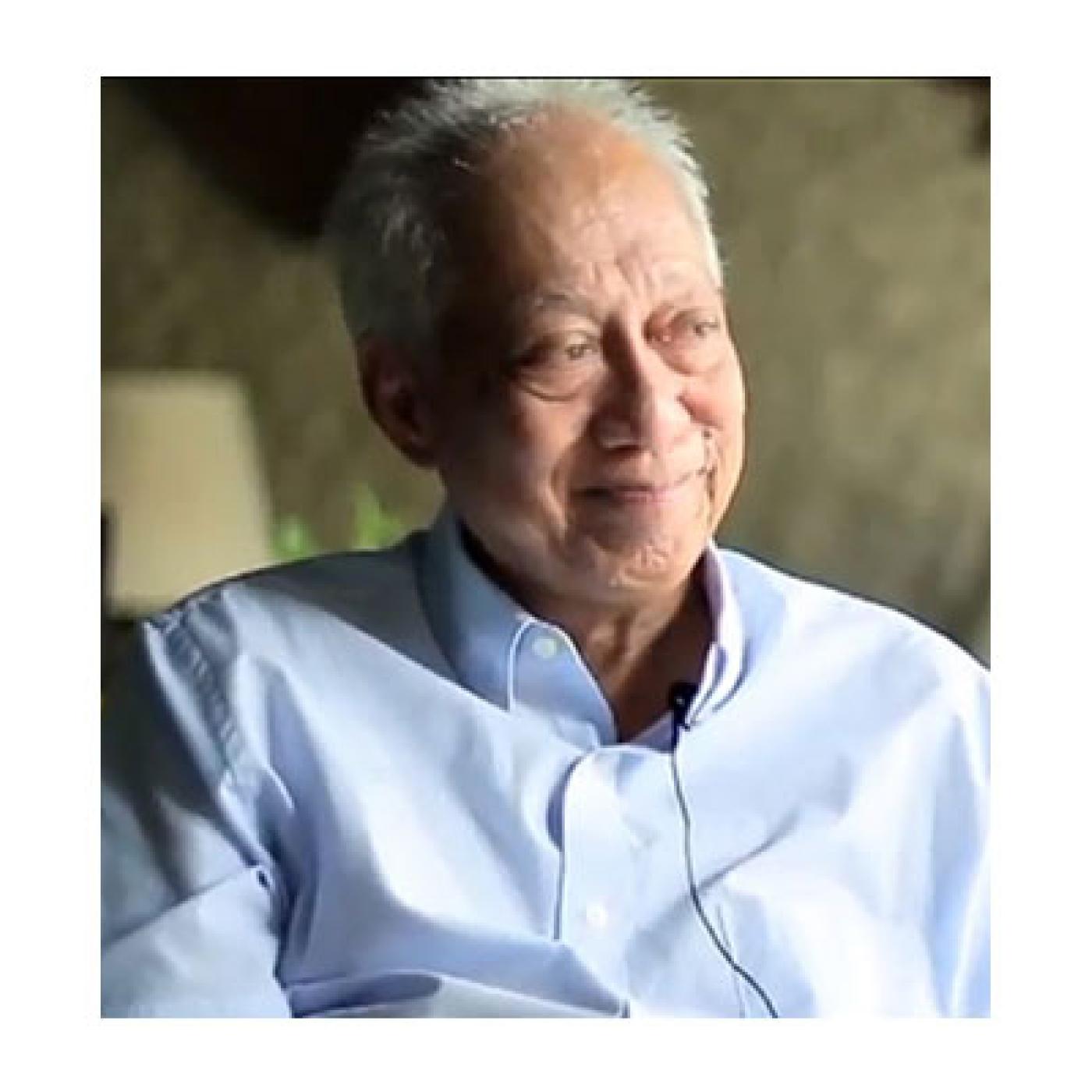Tools & Resources
Filter by
Type
Publication date
Language
Type
Publication date
Language
Image

News & Updates
Feature
Indigenous Unity: Advocates from Cambodia, Guyana and Kenya Connect
IFES youth partners address the twenty-third session of UNPFII
News & Updates
Feature
From Prey Veng Province to the Big Apple
On June 11, "She Leads" alumna Chanthy Hoy spoke on a side panel at the United Nations Conference of States Parties to the Convention on the Rights of Persons with Disabilities. She spoke of the potential of women with disabilities to achieve and thrive in positions of leadership and how it is incumbent upon the international community to continue to support programs that instill a sense of self-worth and confidence in young women.
News & Updates
Feature
Tapping Women's Leadership Potential for Civic Engagement
In early March, IFES and its local partner VBNK concluded a series of "She Leads" workshops in Cambodia. "She Leads Cambodia" provides training to rural and marginalized women who aspire to become more involved in their communities.
News & Updates
Feature
Advocates Trained to Evaluate Implementation of Regional Disability Rights Policy Document
On January 30, IFES and the General Election Network for Disability Access trained advocates from disabled people’s organizations and election-focused civil society organizations on the reporting process for a new regional policy document.
Election FAQ
Elections in the Philippines: 2019 Mindanao Plebiscite
On January 21 and February 6, registered voters in localities covered by the proposed Bangsamoro Autonomous Region in the Philippines and areas that successfully petitioned for inclusion in the Bangsamoro and their parent government units went to the polls to vote in the Mindanao plebiscite. To help you understand this important electoral process, IFES provides Frequently Asked Questions on Elections in the Philippines: 2019 Mindanao Plebiscite.
News & Updates
Feature
Organizations Trained to Advocate for Southeast Asia Regional Disability Rights Plan
On November 1-4, 2018, the General Election Network for Disability Access organized a communications and advocacy training of disabled people’s organizations and civil society organizations from eight countries in the Association of Southeast Asian Nations Community.
News & Updates
Feature
She Leads Program: Q&A with Katie Ryan
She Leads, a flagship program of IFES, works to empower women with the skills and knowledge to participate and take on leadership roles in political and electoral processes through a series of beginner, intermediate and advanced trainings. In this Q&A, Katie Ryan, lead author of She Leads, discusses the origins and impact of the program, which has trained over 2,600 women in four countries and continues to expand.
Publication
Report/Paper
Elections on Trial: The Effective Management of Election Disputes and Violations
Mechanisms for election dispute resolution must increasingly withstand new forms of sophisticated political and electoral manipulation. A new IFES research paper, Elections on Trial: The Effective Management of Election Disputes and Violations, outlines the fundamental principles for procedural justice and open justice in election cases.
June 12, 2018
News & Updates
Feature
Advancing Disability Rights in Southeast Asia through Regional Network of Advocates
In 2011, IFES established the General Election Network for Disability Access (AGENDA) across Southeast Asia. A creative partnership between disabled persons’ organizations (DPOs) and election-focused civil society organizations, AGENDA serves as a forum to improve access to political and electoral opportunities for persons with disabilities by increasing public awareness and elevating advocacy efforts that call for change.
News & Updates
Feature
Election Administrator and 2012 Joe C. Baxter Award Recipient
Christian Monsod, the former Chairman of the Philippine Commission on Elections (COMELEC), is a pioneering figure in election administration. He reshaped electoral administration in the Philippines, focusing on building transparent processes and ensuring greater participation of traditionally marginalized populations.




